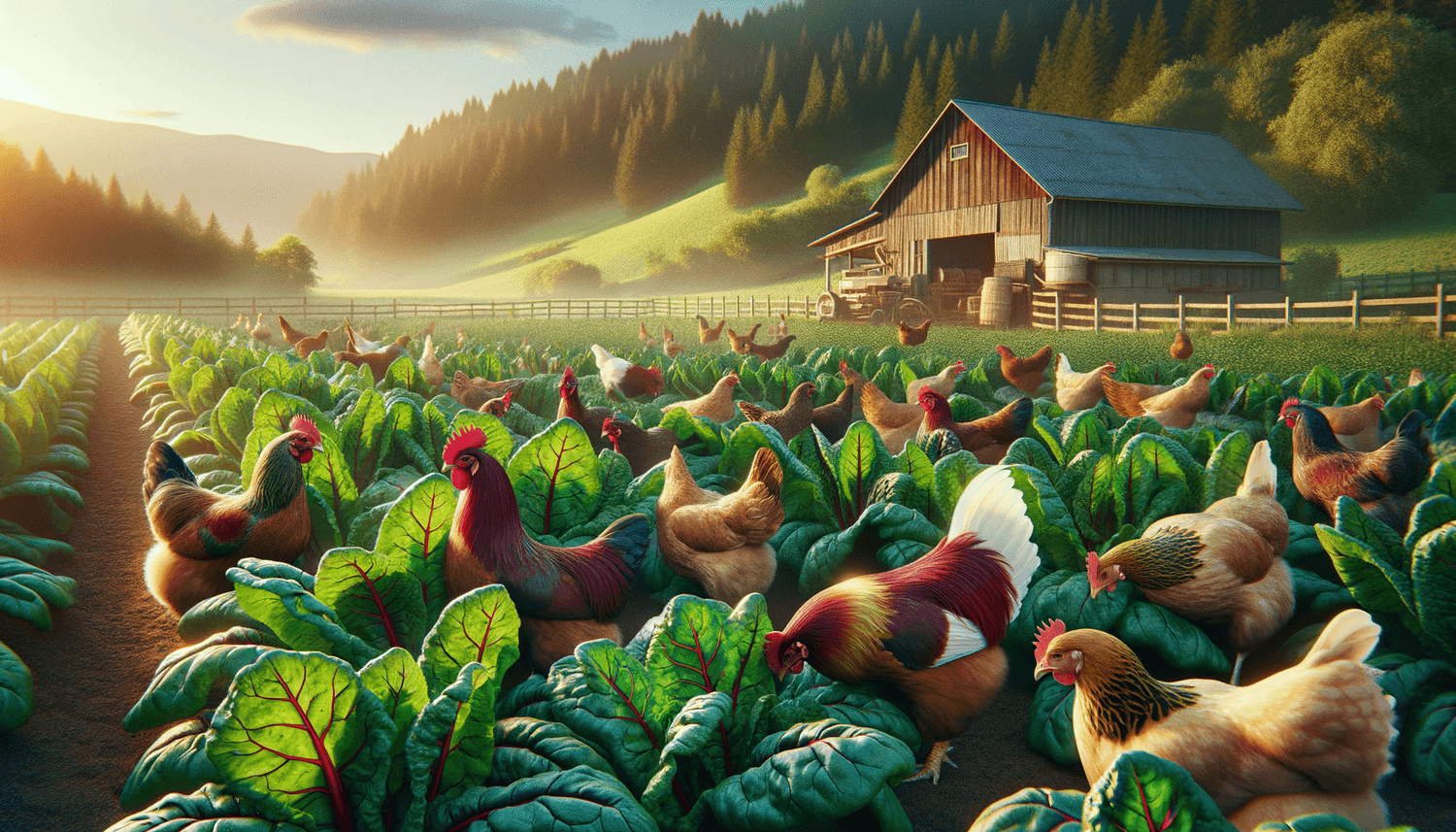Yes, chickens can eat chard. This leafy green is safe for chickens to consume and can be a nutritious addition to their diet. Chard is packed with vitamins and minerals beneficial for chickens, though it should be fed in moderation to avoid potential issues associated with high oxalic acid content.
Quick Summary
- Chickens can eat chard.
- Chard is nutritious but should be fed in moderation to prevent health issues from excessive oxalic acid.
- Key benefits include vitamins A, C, and K, while the risk lies mainly in oxalic acid content.
- Feed sparingly, mixed with other safe greens and foods to ensure a balanced diet.
Overview of Chard
Chard, also known as Swiss chard, is a leafy green vegetable high in vitamins A, C, and K, as well as minerals like magnesium and iron. It belongs to the beet family and is known for its colorful stems and dark green leaves. As a nutritious food source, chard can contribute positively to a balanced diet when consumed in appropriate amounts.
Benefits and Risks of Chard for Chickens
Feeding chard to chickens can offer health benefits by providing essential nutrients that support their vision, immune system, and bone health. However, the primary risk associated with chard is its oxalic acid content, which in large amounts can inhibit calcium absorption and lead to kidney stones. Moderation is key to reaping the benefits while minimizing risks.
Feeding Guidelines
When introducing chard into your chickens’ diet, start with small quantities to monitor their reaction. It’s best to provide chard as a treat, making up no more than 10% of their overall diet. Always wash the leaves to remove any pesticides or contaminants, and cut them into bite-sized pieces to ensure easy consumption. It should be fed in combination with other safe greens and standard chicken feed.
Alternatives
If you prefer not to feed chard to your chickens or if it’s not readily available, other safe and nutritious leafy greens like kale, spinach, and romaine lettuce can be fed instead. These alternatives provide similar benefits and are generally enjoyed by chickens.
Expert Opinions
Poultry nutritionists and veterinarians typically agree that chard, when fed in moderation, is a healthy addition to a chicken’s diet. They emphasize the importance of a varied diet to prevent nutritional imbalances and the over-consumption of any single type of green, especially those high in oxalates like chard. Always consult with a professional for personalized advice for your flock.
Frequently Asked Questions
After learning about the pros and cons of feeding chard to chickens, you might have some additional questions. Here are answers to some common queries.
Can chicks have chard as part of their diet?
While chard is safe for adult chickens, it’s recommended to be more cautious with chicks. Their diet should primarily consist of starter feed to ensure proper growth. If you decide to introduce chard, do so sparingly and observe for any adverse effects.
How often can my chickens eat chard?
Chickens can have chard a few times per week, as part of a varied diet. Ensure it remains a treat rather than a staple, to prevent oxalic acid buildup.
Does chard need to be cooked before feeding it to chickens?
There’s no need to cook chard before offering it to your chickens. Raw chard is perfectly acceptable, and cooking may reduce some of the nutrients. Just ensure it’s clean and free from any harmful chemicals.

















